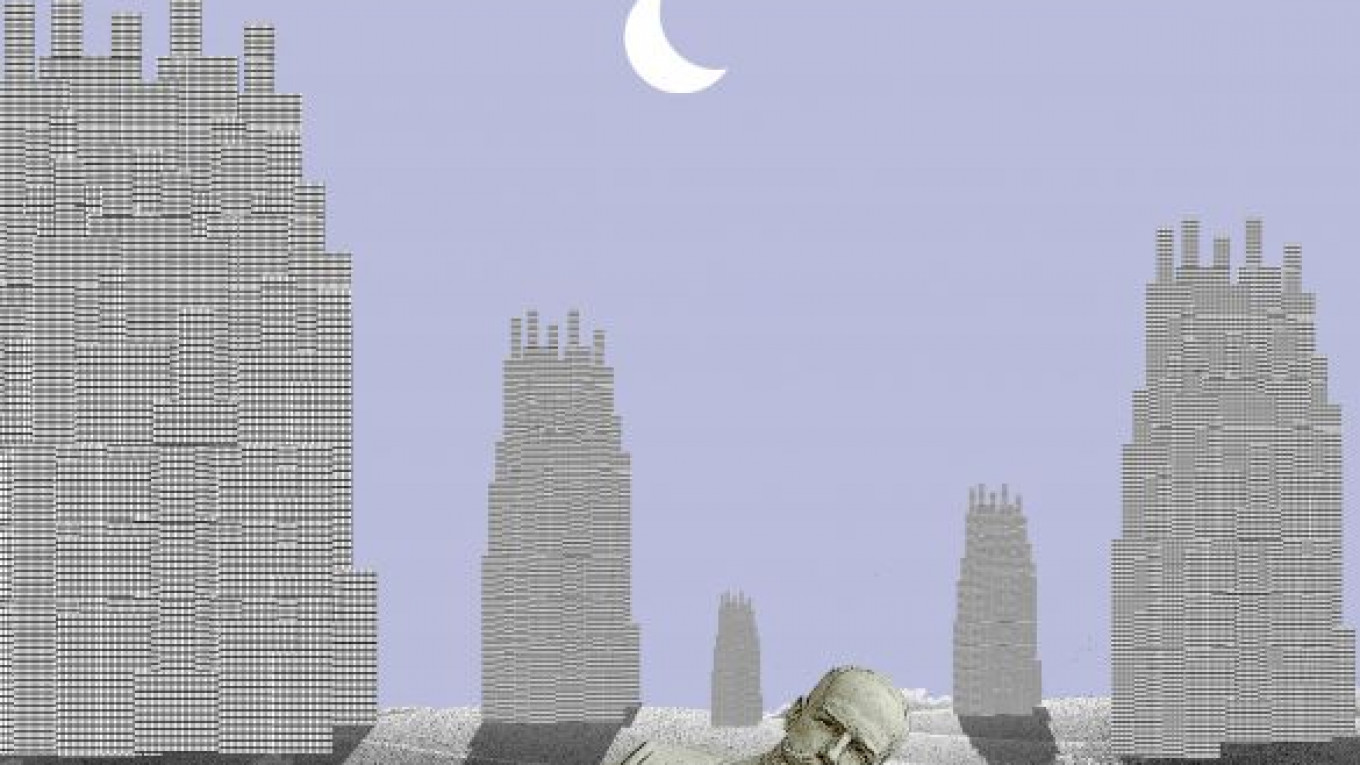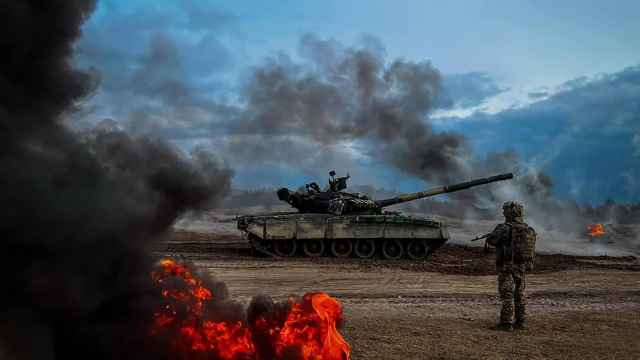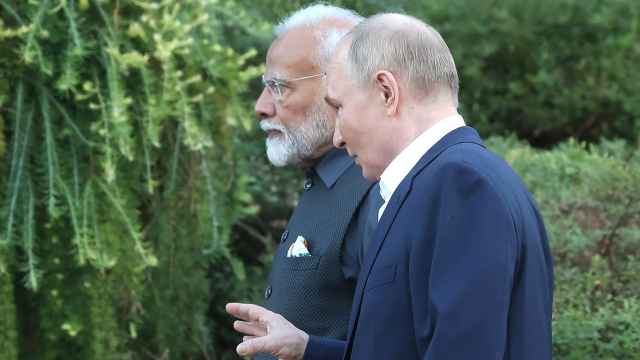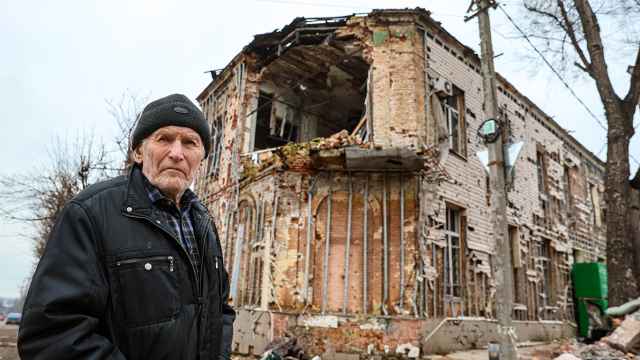In 1906, Pyotr Stolypin, my great-grandfather, was appointed prime minister of imperial Russia. Among his first undertakings was a series of agricultural reforms aimed at creating a new class of smallholding farmers. Five years later, the population had grown by 18.5 million, far exceeding the previous growth rate. Russia had become the largest exporter of grain to Europe, and roughly 3 million private farmers had joined the new rural middle class.
Stolypin's success reflected not only his systematic approach to solving a complex problem, but also how highly he valued farming. In today's Russia, however, small-scale farming remains a low priority compared to large industrial operations. Expediency and quick profit trump diversity and stability.
Today's global economy can be broken down into two systems. One is dominated by a virtual, securities-based economy, which represents most economic activity and a small, yet powerful, minority of the world's population. The other system is a rural economy, which represents a tiny fraction of global gross domestic product and directly affects the lives of the vast majority of people. As the gap between these systems grows, so do social and economic tensions, exemplified in the Arab Spring uprisings.
The United Nations' Millennium Project was designed to bridge this gap through food-security programs. As a result, governments from Africa to Latin America are showing remarkable progress in making agriculture a high public policy priority. But not Russia. Despite increasingly unsustainable social conditions, the country's leaders refuse to pursue agricultural reform.
There are two major reasons for this. The first is Russia's problem of national identity. In 1917, more than 80 percent of the country's population was peasants. Traditionally the most conservative element of society, they undermined the Leninist vision, which aimed to create a new kind of citizen — the proverbial Homo soveticus. So the Soviet authorities moved to eliminate this obstacle through forced collectivization of agriculture. The subsequent famine to which collectivization contributed resulted in millions of deaths in the early 1930s. Later that decade, purges and repression killed many more.
Despite the human and social costs, forced collectivization transformed the country's agricultural sector. In only a few years, more than 90 percent of agricultural land was collectivized and industrialized. The farmer became identified with the kolkhoznik, or collective farmer.
The second reason is economic. Following the collapse of the Soviet Union in 1991, citizens scrambled to privatize. Anyone with powerful connections and access to money went after the low-hanging fruit, starting with oil and gas. Agriculture was barely on the list. The capital investments were too great, the infrastructure too decayed, the market nonexistent and profitability too far off. Without adequate government support and guarantees, agricultural investments were too risky. In addition, the agricultural sector was deemed too primitive for the urban class.
The resulting discrepancy between urban and rural conditions has had serious consequences. In the last decade, more than 13,000 villages have ceased to exist, some through amalgamation with nearby villages but most through attrition, as a lack of schools, electricity and opportunities drives away inhabitants. By some estimates, including from a respected member of the Russian Academy of Sciences' Institute of Geography, the official census is wildly incorrect, underestimating the decline in rural population by nearly 50 percent.
While Russia's so-called vertical-power structure has created a bloated, corrupt bureaucratic machine that is incapable of implementing a coordinated vision like Stolypin's, there is an alternative approach: integrated development, which entails the coordination of private investment with social programs.
Such an approach requires, first and foremost, modest private initiatives to assist in restoring rural Russia through investment in small-scale farming. Meanwhile, social programs must be implemented to improve villages' social infrastructure, including education and health care, and to increase the skills of farmers and small entrepreneurs. The usual Russian way of doing things — creating jobs with no qualified candidates to take them — would be fruitless.
A century ago, Stolypin understood the need to liberalize Russia's economy and create conditions allowing private farmers to develop. He understood smallholders' stabilizing potential and worked hard to build a positive image of farming. Had he not been assassinated in 1911, Russia might have escaped the 1917 revolution and its tragic consequences, many of which are still felt today.
Today, Stolypin's key ideas can be implemented on the basis of market mechanisms. President Vladimir Putin, with his tendency to fetishize pre-Bolshevik Russia, must do more than speak about reform. Russia must stop looking for grandiose causes and dramatic projects. It should enable all of its citizens — including its rural inhabitants — to invest in themselves.
Nicholas Sluchevsky is president of the Stolypin Memorial Center for Government Development and Reform in Moscow. © Project Syndicate
A Message from The Moscow Times:
Dear readers,
We are facing unprecedented challenges. Russia's Prosecutor General's Office has designated The Moscow Times as an "undesirable" organization, criminalizing our work and putting our staff at risk of prosecution. This follows our earlier unjust labeling as a "foreign agent."
These actions are direct attempts to silence independent journalism in Russia. The authorities claim our work "discredits the decisions of the Russian leadership." We see things differently: we strive to provide accurate, unbiased reporting on Russia.
We, the journalists of The Moscow Times, refuse to be silenced. But to continue our work, we need your help.
Your support, no matter how small, makes a world of difference. If you can, please support us monthly starting from just $2. It's quick to set up, and every contribution makes a significant impact.
By supporting The Moscow Times, you're defending open, independent journalism in the face of repression. Thank you for standing with us.
Remind me later.






